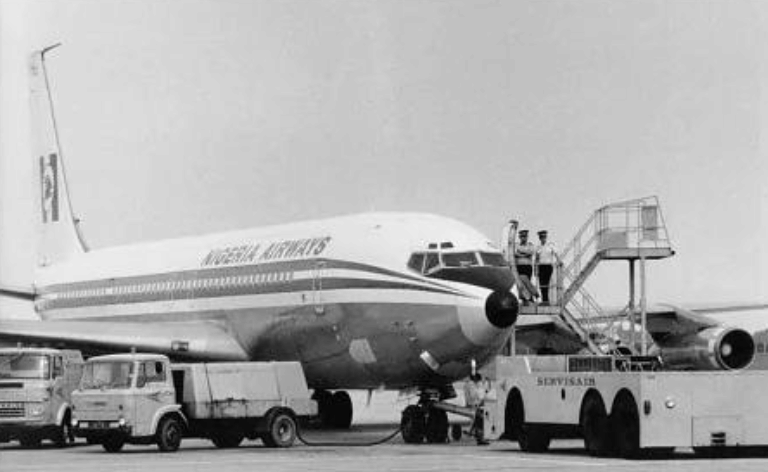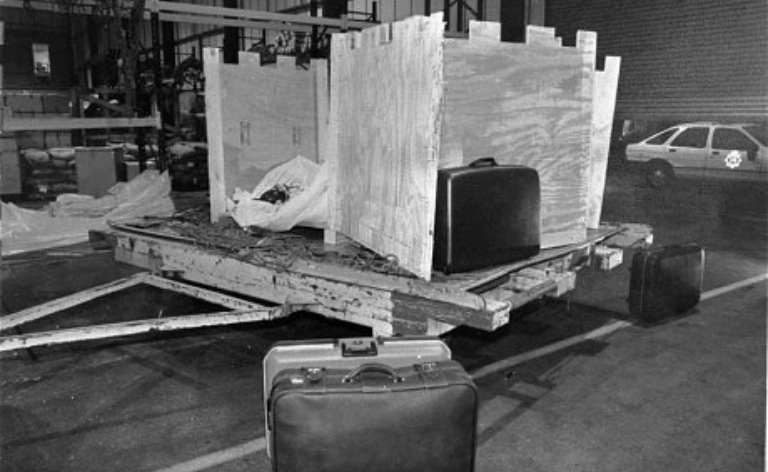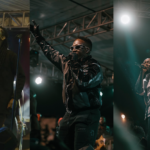Umaru Dikko and The Infamous Diplomatic Bag

The second republic (1979 – 1983) was a tough time for many Nigerians. A government built on a foundation of abuse of power and heavy corruption existed. An era where the political players were comfortable with accessing public funds for personal gain, forgetting the meaning of service to the country. This was the premise in which the military, led by General Buhari, felt the need for an intervention. Buhari described the Shehu Shagari government as inept and corrupt. Consequently, he promised to bring all corrupt government officials to justice. One person singled out for this mission was Umaru Dikko. This led to the events of the infamous diplomatic bag.
Who was Umaru Dikko
Umaru Dikko (1936 – 2014) was a politician who started his career around independence in 1960. He served as Commissioner of finance and information, in the North Central State, during the Yakubu Gowon regime. Also, He was a close adviser and relative to President Shehu Shagari. He became Minister of Transportation after losing out on becoming a Senator in the 1979 elections. In addition to his ministerial role, Umaru Dikko also received an appointment as the head of the Presidential task force on the importation of rice in 1983. This was due to rising inflation and scarcity in the country. He reportedly made a fortune through this scheme set out by the government.
There were rumours that diverted funds from the rice importation scheme sponsored NPN’s second term bid in 1983. In the same way, he was accused of handing out import licenses to businessmen who were friends and major contributors to the NPN-led government. As a powerful minister under the Shehu Shagari government, Dikko saw himself as untouchable. He antagonised top military officials by placing high surveillance on them and monitoring their activities on different occasions. One such person was Major General Muhammadu Buhari, who took over the government from Shagari.
The Buhari Regime
The regime of General Muhammadu Buhari ceased power from the Shehu Shagari government on December 31st 1983. According to them, they were taking over to restore sanity back to the country. On his second day in office, General Buhari published a list of former government officials accused of numerous crimes. Umaru Dikko topped the list. His major crime was the embezzlement of several billions of dollars. Dikko realized his chances of survival in the country were slim after the military takeover. For this reason, he decided to plot his escape as fast as possible.
He allegedly bribed his way across the border all the way to Togo, where he took a flight to London. While in London, he reunited with other fleeing colleagues such as; Dr Joseph Wayas (former President of the Senate), Chief Augustus Akinloye (former Chairman of the NPN) Senator Uba Ahmed (Secretary-General of the NPN), among others. As a free man with refuge in London and looted funds at his disposal, Umaru Dikko became a major critic of the Buhari regime, antagonizing the General further. The regime promised to bring him back and use him as an example to other corrupt individuals out there.
London Surveillance
The trial of members of the Shagari government had already begun by the military. As a result of the trial, the military handed hefty jail terms to the major culprits. Unfortunately, the penalties seemed too harsh for most Nigerians. For example, most government officials got sentenced to 25 years in prison. But one person they were still determined to bring to the book by any means was Umaru Dikko. His criticisms of the military regime and his previous dealings with them under Shagari made him number one on their list.
To demonstrate their seriousness, different government officials went to London to track down Umaru Dikko. They had one mission in mind; Track down Umaru Dikko and bring him back by any means necessary. Also, Israelis came in to help with the mission. Fortunately for them, their presence yielded some results after several months. An Agent spotted Umaru Dikko somewhere in West London. He went further to tail him to his residence. The surveillance was mounted, and plans for his kidnap and a possible return to Nigeria to face trial were underway.
The Kidnap
Three Israeli agents and one Nigerian intelligence officer kidnapped Umaru Dikko from the front of his house on a summer afternoon in July 1984. His captors handcuffed him, threw him in a van and immediately placed him unconscious. The kidnap happened quickly and seemed relatively smooth. Fortunately for Mr Dikko, his secretary (Elizabeth Hayes) witnessed the event take place through the window. She quickly alerted the authorities on what was going on. Similarly, the British government were aware of Buhari’s regime’s desire to have him back for trial, so they were taking this kidnapping issue quite seriously. For this reason, all security and top government agencies received an update on the kidnap. In addition, the Prime Minister got a report on the situation.
The next mission the captors faced was how to get him out of London and back to Nigeria. They transported him to the Cargo terminal at Stansted Airport. There, a Nigerian Airways 707 was already on the runway, waiting to get him out. The plane landed at Stansted Airport earlier that day. Apparently, the UK authorities got information of a plane coming in to collect diplomatic baggage from the Nigerian High Commission in London.

Things seemed to be going alright with his captivity so far. By this time, Mr Dikko was already unconscious and transferred into a crate. The Israeli doctor hired for the mission was by his side. The other captors stayed in another crate for the journey to Stansted airport.
At The Airport
An all-point bulletin went out to all major agencies, including airports and seaports, and everyone was on high alert for any sign of Umaru Dikko. The customs officer on duty that day was Charles Morrow. He heard of the presence of a Nigerian Diplomat and went down to receive him. The Diplomat, a Mr Edet, showed him his identity card and spoke of the presence of Diplomatic cargo he didn’t want to be searched. According to the Vienna Convention on diplomatic relations, a package didn’t need to be searched in dealings with other countries as far as it was labelled as a Diplomatic bag.
Mr Morrow began the clearing process, but something did not add up. For a package to qualify as a “Diplomatic bag.” It had to be labelled, have the correct documentation and have an accompanying Diplomat. The crate also looked big enough for a human to fit into it.
Nigeria had the presence of a Diplomat (Mr Edet), but the labelling and the paperwork were not right. Although the plane was ready for take-off, Mr Morrow decided to lead a team of customs and Police officers to have a closer view of the crates. The Nigerian diplomats protested because the crates had the protection of diplomatic immunity and shouldn’t be opened. But their protests fell on deaf ears.
The British officials went ahead to open the first crate, and what they found shocked everyone. Umaru Dikko lay unconscious in the crate, and the agent who served as the doctor was beside him with his syringes. The other two Israeli agents were inside the second crate. He was quickly rushed to the hospital to be attended to. At this point, everything was over for the Agents. In addition, the Nigerian government had some questions to answer. On the other hand, the kidnappers were unrepentant and insisted Umaru Dikko was the biggest crook in the world and needed to answer for his crimes. Within minutes, the Police flooded Stansted Airport. This led to the arrests of the Israeli agents and the Nigerian intelligence officer.
Consequences
The absence of the correct diplomatic papers played a major role in foiling the kidnapping attempt. One of the Israeli agents blamed the Managing Director of Nigerian Airways for failing to provide the correct documentation for the diplomatic bag. The court tried the four agents that took part in the kidnapping. As a result, they all got jail terms of 10 – 14 years in the UK. Both the Nigerian and Israeli governments denied involvement in the kidnapping attempt.

The Nigerian government had already done the damage. Diplomatic relations ended between the two countries after some years. Also, the British government expelled the Nigerian High Commissioner and two members of the Nigerian high commission. Buhari’s anti-corruption crusade also hit a roadblock as Britain refused to cooperate and extradite other political fugitives, including Umaru Dikko.
The failed kidnap of Umaru Dikko caught the world’s attention. Back home, a lot of people expressed joy with the level the Buhari administration went to bring the perpetrators of wrongdoing to justice. On the other hand, other factions saw it as the damage that draconian military laws have on normal citizens. Above all, it served as a lesson for future leaders always to use the right and proper channels to bring corrupt officials to justice.
Umaru Dikko finally returned to Nigeria 11 years later during the Abacha regime. On his return, he formed the United Democratic Party (UDP). He died in 2014. But before his death, he was a founding member of the Arewa Consultative Forum and the head of the disciplinary committee of the Peoples Democratic Party.
Sarauta Archives looks back on some of the interesting historical moments on the continent. You can check other stories here.












